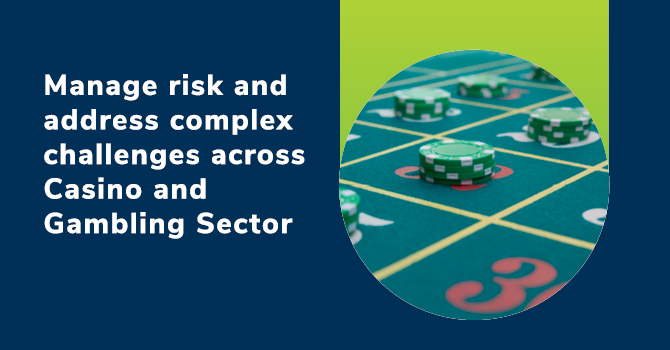
Casino Online Gambling, a deeply ingrained aspect of human culture and society, involves the act of wagering money or something of value on an event with an uncertain outcome. It encompasses various forms such as casino games, sports betting, lottery, and online gambling. Rooted in the pursuit of excitement, chance, and the desire for financial gains, gambling appeals to individuals across all walks of life.
At its core, gambling is driven by the fundamental concept of risk and reward. The thrill of anticipation and the possibility of winning big can be highly enticing. However, this allure can be deceptive, as the nature of gambling is inherently unpredictable and uncertain. Players often face odds that are stacked against them, as casinos and gambling establishments are designed to make a profit in the long run.
While there are instances of individuals experiencing significant wins, the reality is that most gamblers will eventually face losses, sometimes to a devastating extent. The outcome of gambling activities is largely determined by chance, with little control or influence from the players themselves.
Understanding the nature of gambling involves recognizing that it is inherently a form of entertainment that carries both potential rewards and risks. It is crucial to approach gambling with an informed mindset, acknowledging that the odds are rarely in favor of the player.
By maintaining a realistic perspective and setting reasonable expectations, individuals can engage in responsible gambling practices and minimize the potential negative consequences that may arise from uncontrolled or excessive gambling behavior.
The Psychological Impact of Gambling
Gambling, like any form of addiction, can have profound psychological impacts on individuals. One of the key psychological consequences of gambling is the risk of developing problem gambling behavior. This can lead to feelings of anxiety, depression, and low self-esteem, as individuals struggle with the consequences of their actions.
Moreover, the excitement and adrenaline rush experienced during gambling can create a psychological dependence, making it difficult for individuals to resist the urge to continue gambling, even when facing financial and emotional hardships.
Additionally, the psychological impact of gambling extends beyond the individual, often affecting their relationships and social interactions. Gambling addiction can strain relationships, leading to feelings of betrayal, resentment, and mistrust. The preoccupation with gambling can also result in social isolation, as individuals may withdraw from family and friends in order to pursue their habit.
Furthermore, gambling can lead to feelings of guilt and shame, as individuals struggle to come to terms with the negative consequences of their actions. These psychological burdens can have a lasting impact on the mental well-being of individuals and those around them, highlighting the need for greater awareness and support for those struggling with gambling addiction.
Financial Consequences of Excessive Gambling
Financial Consequences of Excessive Gambling can have a devastating impact on individuals, families, and communities. When someone becomes addicted to gambling, they often find themselves spending more money than they can afford to lose. This reckless behavior can quickly lead to significant financial hardships, including mounting debts, loss of assets, and financial ruin.
Moreover, individuals with a gambling addiction often resort to borrowing money from friends, family, or even dangerous loan sharks, further exacerbating their financial troubles. The cost of sustaining this addiction can quickly drain the person’s income and savings, leaving them in a desperate state.
In addition to personal financial hardships, excessive gambling can also have broader economic implications. As individuals become consumed by their gambling addiction, they may neglect their professional responsibilities, leading to job loss or decreased productivity. Furthermore, the financial strain caused by gambling can put additional burden on already struggling households.
This can lead to increased welfare and social service costs, as well as a decrease in overall economic stability. It is important to consider these financial consequences when examining the broader impact of excessive gambling on individuals and society as a whole.
Recognizing the Signs of Problem Gambling
Recognizing the Signs of Problem Gambling is crucial in identifying individuals who may be struggling with an addiction to gambling. There are several key indicators that can help determine if someone has developed a problem. One sign to look out for is when gambling becomes a priority over other important aspects of life, such as work, relationships, or personal responsibilities.
This could be evident when an individual starts neglecting their job, missing deadlines, or avoiding social activities in order to gamble. Additionally, a continuous preoccupation with gambling and an increasing need to gamble with larger sums of money are red flags that there may be a deeper issue at hand.
Exploring the Relationship Between Gambling and Addiction
Gambling and addiction are closely intertwined, with many individuals finding themselves trapped in a cycle of compulsive gambling. This behavior is often driven by powerful psychological factors, such as the rush of excitement and euphoria that comes with placing bets and winning.
In fact, research has shown that the brain’s reward system is activated during gambling, releasing dopamine and reinforcing the addictive behavior. This can create a powerful craving for more gambling, leading to a loss of control and the development of an addiction. Unfortunately, for some individuals, this addiction can have devastating consequences on their personal and professional lives, as well as their financial well-being.
The compulsion to gamble can lead to a loss of savings, accumulation of debt, and even bankruptcy. Furthermore, the thrill of the win can fuel the addiction, making it difficult for individuals to break free from this destructive cycle.
The high stakes nature of gambling can exacerbate this addiction, as individuals may chase their losses in an attempt to recoup their losses, only to find themselves deeper in debt. Overall, exploring the relationship between gambling and addiction is crucial in order to understand the underlying mechanisms at play and develop effective prevention and treatment strategies.
The Social and Relationship Risks Associated with Gambling
Gambling is not just a solitary activity, as it often has far-reaching social and relationship risks. In some cases, individuals may feel compelled to hide or lie about their gambling habits, leading to a breakdown in trust with their loved ones. This secrecy can create a rift in relationships, as the person gambling may prioritize their addiction over their commitment to their family and friends.
Moreover, financial strain resulting from excessive gambling can lead to arguments and conflicts within households, as bills and responsibilities may not be met due to the person’s gambling habits. These issues can escalate and place a significant strain on interpersonal relationships, often leading to a breakdown of communication and even separation or divorce.
Another social risk associated with gambling is the potential for isolation and withdrawal from social activities. Gambling can be an all-consuming activity that takes precedence over spending time with friends or engaging in other social events. The individual may gradually distance themselves from their social circle, as their primary focus becomes their gambling pursuits.
Consequently, the lack of social interaction can lead to feelings of loneliness and increased vulnerability to mental health issues. The isolation resulting from excessive gambling not only negatively impacts the individual’s relationships but also their overall well-being and mental health.
Legal and Ethical Considerations in Gambling
The legal and ethical considerations surrounding gambling are a complex and ever-evolving topic. One key aspect is the regulation of gambling activities to ensure fairness and prevent fraudulent practices. Governments and regulatory bodies are responsible for overseeing the industry, determining licensing requirements, and enforcing compliance with laws and regulations.
Moreover, ethical considerations also play a significant role in the gambling industry. Issues such as the promotion of responsible gambling, protection of vulnerable individuals, and the prevention of underage gambling are all paramount. Operators and stakeholders are expected to maintain high ethical standards in their marketing practices, ensuring transparency and honesty in their advertising like GEMPI123.
Additionally, ethical dilemmas arise when considering the potential exploitation of individuals who may be predisposed to gambling addiction or who are experiencing financial difficulties. Balancing the economic benefits of gambling with the potential social costs is an ongoing challenge in the quest for a more fair and responsible gambling environment.
Strategies for Minimizing the Risks of Gambling
To minimize the risks of gambling, it is important for individuals to establish a budget and stick to it. Setting a predetermined amount of money that can be wagered and not exceeding it is crucial in avoiding financial troubles. Additionally, it is advisable to avoid using credit cards or borrowing money for gambling purposes, as this can lead to spiraling debt and further complications.
Another strategy to minimize the risks of gambling is to limit the amount of time spent gambling. Setting a time limit and adhering to it can help prevent excessive gambling and mitigate the potential negative consequences. It is also beneficial to take breaks during gambling sessions and engage in other activities, such as spending time with loved ones or pursuing hobbies, to maintain a balanced lifestyle.
By keeping time spent on gambling in check, individuals can reduce the likelihood of developing addictive behaviors and experiencing detrimental impacts on their mental health and relationships.
Responsible Gambling Practices and Resources
Research and studies have shown that practicing responsible gambling is essential to maintaining a healthy relationship with this form of entertainment. One of the fundamental aspects of responsible gambling is setting limits on both time and money spent on gambling activities. By setting a budget and sticking to it, individuals can ensure that they do not exceed their financial means and avoid the potential negative consequences that excessive gambling may bring.
Another crucial aspect of responsible gambling is understanding the odds and probabilities associated with different games. Being aware of the risks involved in gambling can help individuals make informed decisions and manage their expectations. It is important to remember that gambling is a form of entertainment and not a guaranteed way to make money. Therefore, approaching it with a realistic mindset and not placing excessive importance on winning can contribute to a healthier gambling experience.
Seeking Help for Gambling-related Issues
For those who find themselves struggling with gambling-related issues, seeking help is a crucial step towards recovery. There are numerous resources available to provide support and assistance in dealing with the challenges associated with excessive gambling. One option is to reach out to a professional counselor or therapist who has experience in treating gambling addiction. These professionals can offer guidance and therapy sessions tailored to address the individual’s specific needs.
In addition to seeking professional help, joining support groups can also be beneficial. These groups, such as Gamblers Anonymous, provide a safe and understanding environment where individuals can share their experiences, receive encouragement, and learn from others who have faced similar struggles. Support groups offer a sense of community, which can be empowering and help individuals realize they are not alone in their journey towards recovery.
Furthermore, attending group therapy sessions or participating in self-help programs aids in building a network of support and provides ongoing motivation to overcome gambling-related issues.
